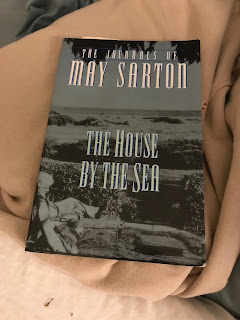 |
| photo by Amy Brandon |
"Then Job replied to the Lord: I know that you can do all things; no plan of yours can be thwarted. You asked, 'Who is this that obscures my counsel without knowledge?' Surely I spoke of things I did not understand, things too wonderful for me. You said, 'Listen now, and I will speak; I will question you, and you shall answer me.' My ears had heard of you but now my eyes have seen you. Therefore I despise myself and repent in dust and ashes." Job 42:1-6
(I've convinced Ken to write a guest post on Unbroken,
because I know I will never read it. Hope everyone enjoys
hearing from a different voice.)
In the Old Testament, there is a story about a man named Job who endures incredible suffering and loss. It is a grand work of literature, wrestling with deep and perhaps unanswerable questions about the whys and wherefores of the agonies that plague humanity. Much of the book revolves around the issue of the fairness of an omnipotent, all-loving God who would allow such unrelenting woe.
Job's epic came to mind as I read Laura Hillenbrand's Unbroken. Having previously read her novel, Seabiscuit, I was looking forward to another good story and was not disappointed. For me, another draw to the book was the subtitle, A WWII Story of Survival, Resilience, and Redemption, as the concept of redemption is one of my favorite subjects to savor.
The well-documented story line is a biopic of Louis Zamperini who grows up poor in Depression-era California in an Italian immigrant family struggling to make it. The survival aspect begins early as somehow Louis makes it through a childhood and youth of hell-raising. He is rescued from this period of perpetual trouble-making by his supportive family, particularly by an older brother who guides him through (and sometimes joins him in) shenanigans and who eventually steers him into a more productive form of release: competitive running. Success in track propels Louis to a college scholarship where he meets with great success and then on to Olympic competition in Berlin, which lent a particularly interesting historical aspect to this segment. He is competitive but doesn't win, so he sets his sights on the next Olympic games in Tokyo where he will be more seasoned and primed for victory.
World War II intervenes, and Louis hangs up his cleats and is soon flying with a bombardier squadron. When his plane is shot down, he floats with three survivors of ten original crewmen for 47 days across 2000 miles of the Pacific. The writing is so compelling that you feel you are there! Starving, sun-roasted, shark-attacked, typhoon-lambasted...it's all there, even an albatross omen allusion. The ingenuity, resolve, tenacity, and sheer willpower to live are showcased. They are strafed by a passing Japanese Zero warplane for good measure, but somehow they endure. Finally they bump into the Marshall Islands, only to be captured by Japanese troops. And then the real nightmare begins.
I'll not detail the horrors of this episode, except to say it is one of the most graphic portrayals of brutality I have ever read. There is one gut-wrenching scene of monumental abuse of Louis and other POWs after another, seemingly ever more cruel and unusual. They become emaciated, humiliated, and dehumanized in all manner of ways. Yet somehow, somehow, somehow they cling to life and to some semblance of dignity. A sidebar on the importance of maintaining dignity is one example of the thought-provoking offerings from the author to augment the plot.
Then suddenly with the bombings of Hiroshima and Nagasaki (again you feel as if you are there), it's all over. After the euphoria of release from all these tormented months, yet another perhaps more distressing crisis afflicts Louis. After reuniting with his family, whom we have kept up with throughout the tale, and marrying, he succumbs to PTSD: horrible nightmares, flashbacks, fits of rage and the whole bit. At this point, I had to recheck the title. Unbroken? This man is obviously broken. His marriage falls apart. He becomes a bitter, uncaring, mean drunkard. What plane crash, ocean peril, and hellish pit of POW camp could not do to him appears to be carried out by everyday life in crushing this man's spirit. His desire to compete in track is dissolved by injuries inflicted in captivity. He has no resolve to work toward a future. What do you say, Job?
Then God speaks, but not out of a whirlwind as to Job. Or perhaps it is a whirlwind...a human whirlwind -- one evangelist named Billy Graham. I will have to say I was "blown away" as this scene unfolds. Graham, at this point a relative unknown, came to Los Angeles and set up tent. Sparse crowds became larger. A staunchly resistant Louis (and we know FULL well by now how stubborn he can be!) is badgered into going. He scoffs, and he dismisses. And then he remembers. He remembers miraculously being released from wires that entangled him as his plane slipped beneath the waves while he was unconscious, and no one else was around. He remembers bullets peppering the raft as the men lay defenseless, and somehow, the bullets missed. And he remembered promises made to God if he survived, and something clicked. Louis Zamperini came to faith. He found his redemption. He then dedicates his life to helping others find the same, even going so far as to a return to Japan to forgive his tormenters.
~ Ken



